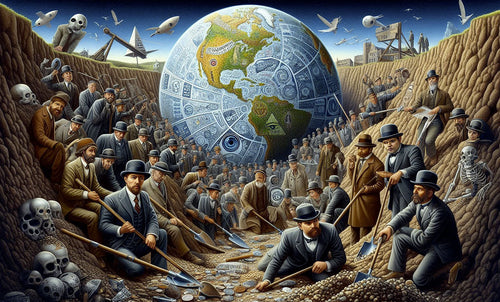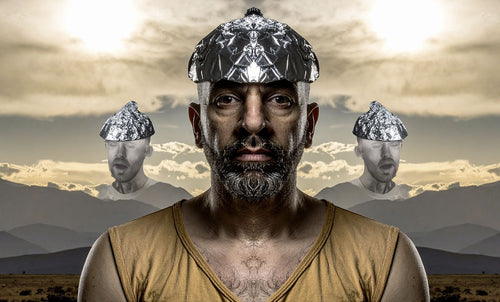
Transhumanism and Artificial Intelligence in Educational Environments: opportunities and limits
Sarah Maria TagliabueEducation has always been a fertile ground for innovation, and today we are witnessing a radical transformation driven by emerging technologies , particularly transhumanism and artificial intelligence (AI). These developments promise to revolutionize the way we learn, teach and interact with knowledge. However, it is crucial to critically examine the actual capabilities and limitations of these technologies, especially when it comes to human higher intellectual functions.
Transhumanism in Education
Transhumanism , a philosophical and cultural movement that advocates the use of technologies to enhance human capabilities, is starting to find applications in education. Advanced technologies such as brain-computer interface (BCI), augmented reality (AR) and virtual reality (VR) offer new ways of learning that go beyond traditional limitations.
Brain-computer interfaces can facilitate personalized learning by tailoring content and teaching methods to each individual's specific cognitive needs. Students with disabilities can benefit greatly from these technologies, overcoming barriers that prevent them from fully participating in mainstream education.
Augmented reality and virtual reality can transform the classroom into an immersive environment, where students can explore virtual worlds, visualize abstract concepts in a concrete way, and interact with learning materials in a more engaging way. However, while these technologies can enhance technical learning, they cannot replace the intuition and superior intellect that come from deep mental and spiritual development, nor the multifactorial nature of authentic experience, limiting the essence of every experience to the mental. .
Artificial Intelligence in Educational Environments
Artificial intelligence represents another key pillar of educational transformation. The applications of AI in education are many and varied, including intelligent tutors, predictive analytics and personalization of learning.
Intelligent tutors, for example, are AI systems designed to provide personalized support to students. These tutors can adapt to each student's skill level, offering detailed explanations, suggesting exercises and monitoring progress in real time. However, such tools are limited to functions of the lower intellect, such as memorization, problem solving, and data analysis. They cannot emulate the human intuition, profound creativity, and ability to understand complex and abstract concepts that characterize the higher intellect.
Predictive analytics can be used to identify students at risk of dropping out or academic failure by analyzing a wide range of data to spot patterns and flag any problems early. You will agree with me that this analytical capacity is intrinsically limited. It cannot capture the nuances of human experiences and emotional dynamics that influence educational success.
The personalization of learning, made possible by AI, allows us to create tailor-made educational paths for each student, but true educational personalization cannot be completely automated. It requires the sensitivity, empathy and intuitive understanding that only a human being with a superior intellect can offer.
Challenges and Ethical Considerations
Despite the promising applications of transhumanism and artificial intelligence in education, there are also important challenges and ethical considerations to address. The privacy and security of student data are critical issues, as these technologies require access to a large amount of personal information. It is essential to ensure that data is protected and used responsibly.
Furthermore, there is a risk of growing disparity between those who have access to these advanced technologies and those who are excluded from them. It is crucial to adopt policies that promote equity and inclusion, ensuring that all students have an equal opportunity to benefit from technological innovations.
Finally, the adoption of these technologies must be accompanied by ethical reflection on their impact on teaching and learning. Educators must be trained and supported in the use of new technologies, and new pedagogical models must be developed that effectively and respectfully integrate the potential of transhumanism and AI.
Transhumanism and artificial intelligence are opening new frontiers in education, offering unprecedented opportunities to improve learning and teaching. However, it is crucial to recognize that AI can only replace the functions of man's lower intellect. Higher abilities, such as intuition and deep understanding, remain exclusive to those who have developed higher mental bodies. To fully exploit the potential of these technologies, it is necessary to address the ethical and practical challenges that arise from them, ensuring that technological progress is accompanied by adequate all-round personal development.















































